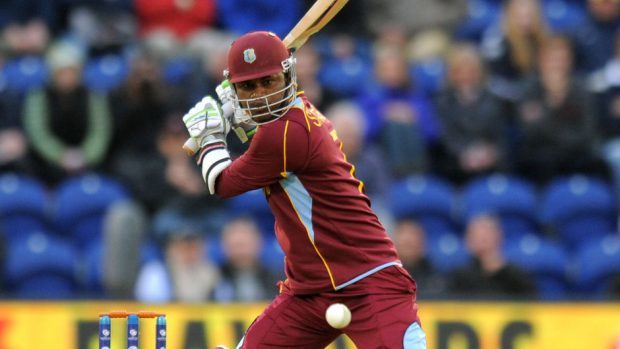It was one of those special days which leaves you with a massive smile on your face.
The man from the Barbadean tourist agency had asked if I was interested in a chat with “Garry”; if so, he could arrange the meeting as long as I was flexible.
Was I flexible? Of course. Why not when I was being offered the chance to meet Sir Garfield Sobers, probably the greatest cricketer who has ever played the game?
Even then, arthritis was setting in and the maestro was struggling to negotiate his way around some of Scotland’s finest golf courses.
But, once we started talking – and the evening ended with a song from the great man – his conversation provided a reminder of the myriad qualities which the West Indies have brought to the international game down the decades.
The current generation have struggled to maintain the standards of their illustrious forebears and we are likely to witness further signs of the lack of strength in depth on the Caribbean circuit when Jason Holder leads his charges into battle against England in the First Test at the Ageas Bowl in Southampton tomorrow.
It will be a strange occasion, given the dearth of any spectators and the low-key build-up to the series and that is even before we consider the number of leading performers on both sides who, for one reason or another, won’t be involved in the proceedings.
Yet, let’s be thankful for the return of some action and the opportunity to assess how Ben Stokes reacts to captaincy duties in the absence of Joe Root, who is more concerned about deliveries of another kind – his wife, Carrie, is expecting the couple’s second child.
One suspects that Stokes and Holder are in a similar mould: personalities with an intrinsic attacking flair who will not waste time on complex strategies when they can encourage their players to express themselves with bat and ball.
That’s the way it was with Sobers in the 1950s and 1960s when he used to join forces with Rohan Kanhai, one of the many high-class Windies stars who have paraded their skills on Scottish soil, both at club and international level.
Kanhai provided plenty of pyrotechnics at Aberdeenshire, while Alma Hunt, from Bermuda, also shone during his time in the Granite City and, even after returning to his homeland, called his house “Mannofield”.
Nor should we forget that the stellar triumvirate of Gordon Greenidge, Desmond Haynes and the late, great Malcolm Marshall all turned out in the Scotland cause at different stages in one-day competitions and made an impression on everybody they encountered on their journey from the Caribbean to Caledonia.
I’ve never forgotten the central message which Sobers communicated when we shared a coffee and a whisky together. Even at that stage, the man who will celebrate his 84th birthday this month was convinced there was no reason why Scotland couldn’t progress in the footsteps of Sri Lanka, Bangladesh and Zimbabwe.
He told me: “Cricket isn’t a complicated game. It’s two sides of 11, and if you work hard enough and remember to do what works for you, anything is possible.
“I sometimes wonder why we don’t have more countries playing Tests. I go to all these different places and see cricket clubs and I ask myself why we only have eight or nine teams. It’s not enough. We all know that. But what do we do about it?”
It’s still a pivotal question for the ICC, considering the wide gulf between the haves and have-notes and as the sport prepares for life in a post-Covid environment.
And while precious few youngsters can aspire to the gifts possessed by Sobers – a masterful batsman, glorious pace bowler, sublime spinner and brilliant fielder – he has asked questions which the sport’s administrators are still nowhere close to answering.
As he said: “Scotland have every motivation to keep improving. I know they love cricket and that some of their boys have gone down to the county circuit in England.
“I know it’s difficult when your boys are only playing part-time. But Sri Lanka were in the same place not so very long ago. Hopefully, other countries will come through.
“We need the game to get bigger.”
More than 20 years later, the same reservations apply. Yes, Ireland and Afghanistan have been given Test status and have greater financial clout than they did in the past.
But although they are thrown occasional crumbs by the Big Three – England, Australia and India – there is still little sign of a global structure which nurtures fresh blood and allows the likes of Scotland and The Netherlands a meaningful fixture programme.
At least cricket will be back in the Test spotlight and there should be plenty of twists and turns when two inexperienced and rusty line-ups lock horns tomorrow.
Yet there needs to be a realisation that 2020 has been an anxious period for the game and sticking with the status quo shouldn’t be an option.
Sobers knew that all those years ago. But then, he has always been special.
